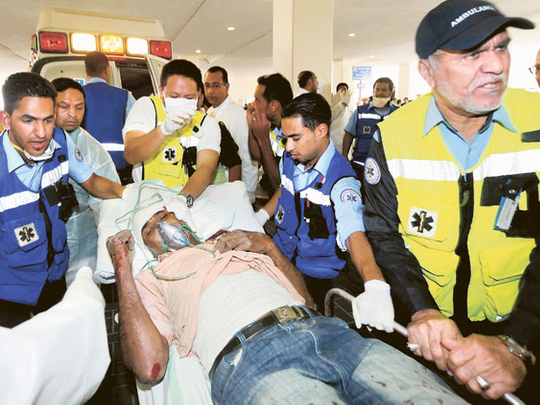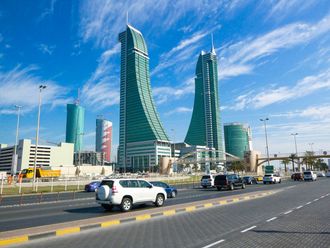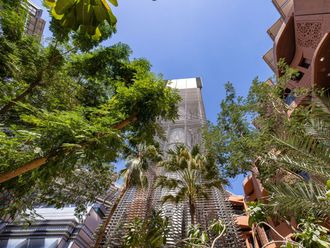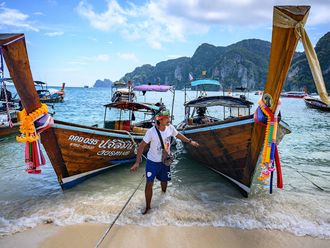
Manama: Bahrain's King Hamad Bin Eisa Al Khalifa on Tuesday issued a decree declaring a three-month state of national safety.
The decree is in line with Article 36 of the constitution stipulating that "the state of national safety or martial law shall be proclaimed only by decree. In all cases, martial law cannot be proclaimed for a period exceeding three months. This period may not be renewed except with the consent of the majority of the members of the National Assembly present."
According to legal experts, the state of national safety is short of the martial law and is mainly meant to restore stability and security in cases where both have been severely undermined.
In explaining the reasons for declaring the state of national safety, Bahrain said they were related to the recent circumstances in during which "escalations have undermined the security of the country, put people's lives at risk, harmed their interests and livelihood, caused damage to properties and affected state institutions, places of worship, schools and universities."
Other reasons cited were the deterioration of medical services, the use of a hospital as "a hotbed of horror and terror" and the harm to the economy and development.
The state of national safety would be used to address these issues and restore people's confidence in the state institutions while boosting their security.
According to the decree, the commander-in-chief of the Bahrain Defence Force is tasked with taking the necessary procedures and measures to preserve the safety of the country and citizens.
No details were released about the measures to be taken, but the statement stressed that they will be implemented by the Bahrain Defence Force, the public security forces, the National Guard and any other forces if need be. This will include the units from the Peninsula Shield, the pan-GCC military force, that entered Bahrain on Tuesday and Wednesday.
The declaration comes as medical staff at Bahrain's largest hospital struggled to come to grips yesterday with scores of injured from a series of violent clashes between anti-government demonstrators and security forces in the island of Sitra.
A stream of ambulances and private cars rushed at least 170 people to Al Sulmaniya Medical Centre after reports of shootings on Sitra island and in outlying villages.
"We need blood, we need blood," one doctor shouted as nurses and attendants wheeled stretchers through the corridors.Medical and ambulance staff say the injured were suffering from gunshot and shotgun wounds as well as injuries caused from inhaling tear gas and being hit by rubber bullets.
Government sources say that a civilian and a police officer were killed during the violence. Medical staff at Sulmaniya, however, say four people died and put the number of wounded at 170.
Gulf News saw two nurses collapse from grief as the wave of injured continued to arrive.
Outside, in the courtyard, more than a thousand protesters gathered, chanting, shouting political slogans and vowing to continue their month-long campaign for political, social and constitutional reforms.
An ambulance was hit by two rounds as it assisted the wounded on Sitra island, and three medical staff were also reportedly wounded.
Gulf News saw two ambulance workers among the dozens of injured in the casualty wards at the hospital.
Youth man checkpoints
At Pearl Roundabout, the area that has become the focal point for anti-government protesters, youths armed with clubs manned checkpoints as several thousand gathered on Tuesday evening for prayers and speeches.
Police and Bahrain Defence Force, aided by security personnel from other GCC counties, were trying to come to grips with the latest outburst of political and sectarian violence. .
Throughout Manama, sections of the city have been cordoned off with makeshift barricades manned by youths wielding sticks, iron bars, pool cues and baseball bats.
The city's financial district was closed while, through the downtown and most of the country, shops and businesses were closed, building shuttered.
Travel in and out of Manama was severely restricted as security forces, some in street clothes, stopped and searched vehicles for weapons.












